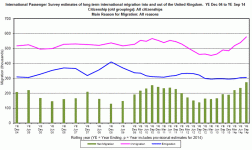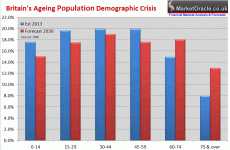A bit like when 364 economists wrote to the Times in 1981 forecasting doom and disaster as did the then Governor of the Bank of England and all the usual suspects but were all proved wrong. Consensus or group think isn't always right.
Unfortunately we only get one decision though. Group think usually happens in a single organisation, like a government ministry. Everyone hears a certain point of view, and those who don't agree with it are slowly marginalised until everyone is blindly singing the same tune. If those at the top are saying one thing the only way to get access to that group is by agreeing with them. Moreover once you're inside the group no-one is willing to challenge the dominant narrative because that narrative is what holds this group in its elevated position, so it pays to keep spinning it. Finally individuals might have doubts but the prevailing narrative is so strong they feel unable to disrupt it. This is different: these are all independent and separate organisations coming to a similar conclusion. Group think might occur in any one of them but all of them?





